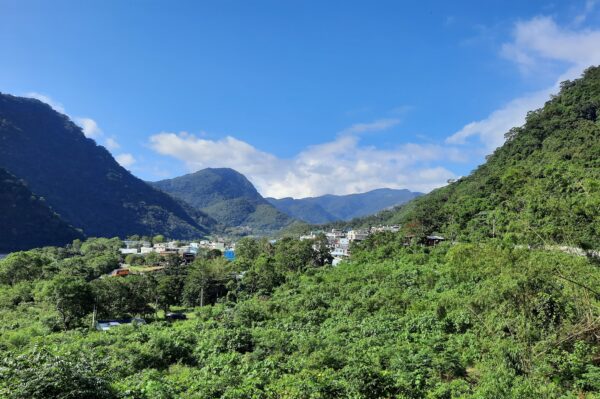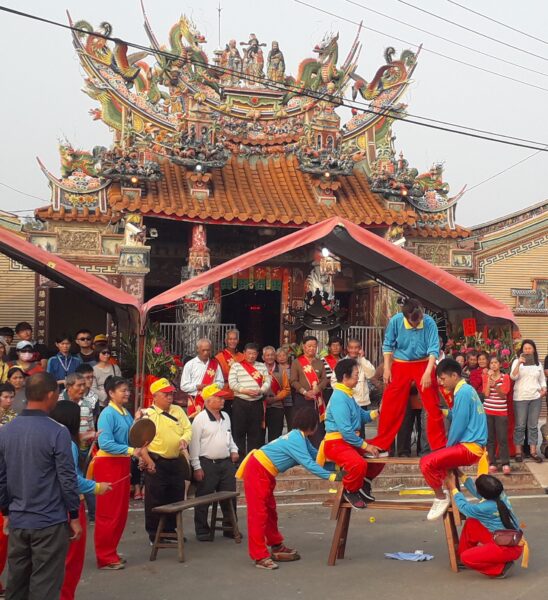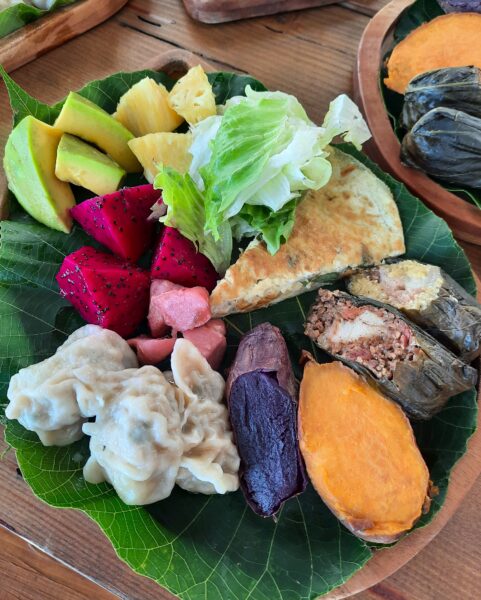Taiwanese are famous for their industriousness. Thanks to their efforts, since World War II the island’s economy has been transformed from one which depended on agriculture to a powerhouse of manufacturing and technology.
 Not everyone is obsessed with work and business, however. As Taiwan has grown richer, its people have learned to appreciate the importance of slowing down and savouring moments with friends, family, and Mother Nature. Even though the major cities still have the best schools and hospitals — not to mention better job opportunities and more entertainment options — the one-way stampede from countryside to city has finally slowed.
Not everyone is obsessed with work and business, however. As Taiwan has grown richer, its people have learned to appreciate the importance of slowing down and savouring moments with friends, family, and Mother Nature. Even though the major cities still have the best schools and hospitals — not to mention better job opportunities and more entertainment options — the one-way stampede from countryside to city has finally slowed.
Some people relocate to quieter corners because they don’t want their children subjected to the heavy academic pressure that’s standard in many schools. Others have inherited properties which they’ve decided to convert into welcoming B&Bs or quaint restaurants; some revive old artisanal food businesses. Among the communities that have greatly benefitted from returnees and newcomers is Dulan on the coast of Taitung County and Meinong in the rural interior of Kaohsiung. Life of Taiwan has curated a list of the loveliest homestays and coffeeshops in these and many other places and we take great pleasure in introducing them to our guests as part of our renowned customised tours.
Taiwan’s slow towns
Recognising their advantages in terms of unspoiled scenery and strong traditions, some of Taiwan’s local governments have wholeheartedly embraced the worldwide Slow Movement. This movement and Cittaslow International, the Italy-based organisation that promotes it are part of humanity’s response to the stress and pace of post-industrial existence. Slow-lifestyle advocates say that modern technologies, while making it possible to do almost anything more quickly than before, haven’t made people any happier. They say that the simplest pleasures, such as sipping tea while gazing at distant mountains or walking slowly through a sublime bamboo grove, are in fact the truest.

Sanyi is synonymous with woodcarving while Nanzhuang is a multiethnic town and a gateway to some of the northwest’s most appealing sights. Two other townships have joined Cittaslow: Fenglin in Hualien County and Dalin in Chiayi County.
The former was the first community in Taiwan is seek membership. Its population of 10,300 is predominantly Hakka. Many of them are farmers who specialise in cultivating bamboo shoots, peanuts, and watermelons; some raise snails for meat. The entire area is ideal for exploring by bike. Cyclists capable of riding 22 km (13.7 miles) one way should spend half a day getting to and looking around Danong Dafu Forest Recreation Area, a vast expanse of former sugarcane plantation that’s now Taiwan’s biggest afforestation project. Scientists have expressed surprise at how quickly multiple mammal and bird species have established themselves within the recreation area. If that sounds a bit too far, there’s the old Japanese-flavoured logging settlement of Lintianshan.
Dalin is much bigger (almost 30,000 people live there), having grown up during the heyday of the sugar industry. Taking a look at Dalin makes sense if driving between Taichung and Alishan. The most interesting sights are a fair distance apart; it’s the kind of place where having a car at your disposal makes a real difference.
The Slow Movement grew from the concept of Slow Food, the antithesis of globalisation and multinational fast-food corporations. Slow Food proponents stress the importance of traditional and regional cuisines, local crop and livestock varieties, and a frugal approach to minimise both food miles and food waste.
2024 Taitung Slow Food Festival
Among the foods listed in the Slow Food Foundation’s Ark of Taste is vegetable fern (Diplazium esculentum, known to Mandarin speakers as guomao 過貓). Consumed throughout South and Southeast Asia, in Taiwan this delicious and healthy green is a favourite at restaurants run by members of the island’s Austronesian indigenous tribes. In fact, indigenous chefs play a leading role in the local Slow Food scene, especially during the annual Taitung Slow Food Festival.
This November 2 and 3, the festival will hold a banquet beside Dapo Pond in Chishang Township. (By the way, Chishang is said to grow the best rice in Taiwan, grain so excellent that, during the 1895-1945 period of Japanese colonial rule, it was supplied to the emperor’s household in Tokyo.) Those attending the feast are invited to ‘raise a toast, while savoring handmade slow food delicacies… fresh, thoughtful meals that blend tradition with a modern touch. We invite you to take a seat at the red tables to savour the new flavors of Taitung’s banquet cuisine and experience a celebration of local culture that you will never forget’.
The 2024 Taitung Slow Food Festival will also feature a Slow Food Market and a series of talks by experts and entrepreneurs. In previous years the market offered vegan versions of indigenous dishes to slow-cooked hand-cut pork belly; traditional preserved delicacies to Hong Kong-style dim sum made using Taitung’s superb produce; and quiche-like pies that incorporate native herbs.
The event aims to not only promote local food businesses but also empower local youth. Because the Slow Food Movement encourages cultivating mindful eating habits and a deeper connection to food systems, local educators are endeavouring to shape dietary behaviour and cultural appreciation among youngsters via experiential learning and hands-on engagement.
In keeping with its environmental principles, no single-use cutlery will be available at the festival, so visitors should bring their own. For additional details and downloadable English-Chinese guides to recommended farms and restaurants, you can visit the festival’s official website: https://slowfoodtaitung.tw/
If you’re drawn to the idea of an ultra-relaxing trip to Taitung — perhaps including the South Cross-Island Highway, an in-depth look at an indigenous community, and some time on the county’s windswept Pacific coast — and/or other parts of the island, contact us today to begin planning the Taiwan private guided tour of a lifetime!

